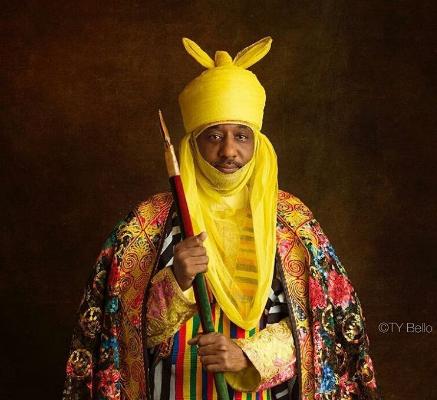The Muslim Rights Concern (MURIC) has hailed the Emir of Kano, Muhammadu Sanusi II over plans to bar Kano men from marrying more than one wife.
The group, while describing the proposal as a good development, noted that it conformed with the pronouncements of the Glorious Qur’an on marriage.
Sanusi, while speaking in Abuja on Sunday at the 50th anniversary of the death of Ambasador Isa Wali, a former Nigerian High Commissioner to Ghana, said he had been able to establish a connection between polygamy, poverty and terrorism.
He said, “Those of us in the North have all seen the economic consequences of men who are not capable of maintaining one wife, marrying four. They end up producing 20 children, not educating them, leaving them on the streets, and they end up as thugs and terrorists.
“It is perhaps a tribute to Mallam Isa that today, as I speak, in the palace in Kano a sub-committee of scholars, which I set up and has been working for about a year, is finalising the final sections of a family law we intend to introduce in Kano which will address some of the issues that Mallam Isa was concerned about,” Sanusi had said.
Reacting, MURIC, in a statement issued by its director, Professor Ishaq Akintola and forwarded to DAILY POST, said his group was behind the proposal by the monarch.
Akintola said, “The Emir of Kano yesterday revealed that the state government is preparing a law that will make it mandatory for men seeking to marry second wives to satisfy certain conditions before they can be allowed to do so.
“The Muslim Rights Concern (MURIC) wholeheartedly supports this move.. It is a bold, visionary and revolutionary step.
“Although Islam allows a man to marry up to four wives, this permission is meant to provide security for widows and other unmarried women. It is an open secret that women outnumber men in all parts of the world. Islam therefore permits men to marry more than one wife in other to provide shelter and welfare for those women who would have been left single.
“In the first instance, the Qur’an enjoins those who do not have the capacity to maintain even a single wife to abstain from marriage until they can become economically strong enough. The verse says, “Let those who do not have the means for marriage keep themselves chaste until Allah gives them means out of his Grace” (Qur’an 24:33).
“The above verse take care of men who are still bachelors. But another verse caters for both bachelors and married men. It allows a man who already has one wife to take a second woman, a third or even a fourth but with the proviso that such a man must have sufficient wherewithal to care for them all.
“The verse says inter alia, “…Marry two, three or four women of your choice. But if you fear that you will not be able to deal justly with them, marry only one…” (Qur’an 4:3). It is thus clear that, ceteris paribus, Islam actually encourages monogamy and a second wife (or third and fourth) can only come in where there is surplus provision.
“What the Kano State government is trying to do is to give interpretation to the phrase ‘to deal justly’ with two, three or four women. This becomes necessary in view of the fact that many Muslims abuse this window by marrying more than one wife when in reality they cannot even maintain one wife comfortably. The result is the production of children who end up as social miscreants.
“MURIC commends the vision and courage of the Emir of Kano as well as the forthrightness of Kano State Government for evolving this great idea. We charge other states which have Muslim majority population to emulate this policy. It is capable of reducing poverty, raising the standard of living and increasing the number of literate citizens.”
Source: Daily Post
This page has been viewed 373 times


























